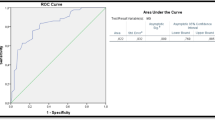Abstract
Background
It is not known whether patients on oral vitamin K antagonists who have unstable INRs achieve more stable INRs with daily vitamin K supplementation. We sought to determine whether vitamin K supplementation may decrease INR variability in patients with a history of unstable INRs, how soon the INR decreases after vitamin K therapy is initiated, the time to reach a therapeutic INR after vitamin K initiation, and how much of an increase in oral anticoagulant dose is needed to maintain the INR in the desired range.
Methods
This is a prospective open label crossover study of patients on warfarin with a history of fluctuating INRs. A 9 week observation phase was followed by an 8 week period with patients receiving 500 μg of oral vitamin K daily. INRs were determined once weekly with a home point of care monitoring instrument.
Results
Vitamin K supplementation led to a decrease in INR variability in five of the nine patients studied (56%). INR decrease occurred 2–7 days after initiation of vitamin K. Therapeutic INRs were achieved 2–35 days after vitamin K therapy was initiated and an increase in warfarin dose of 6–95% was required to bring the INR back into the therapeutic range.
Conclusions
INR fluctuations may decrease in selected patients with unstable INRs who receive vitamin K supplementation. A study with a larger sample size and longer follow-up period is needed. The results of the present study can help design such a study.


Similar content being viewed by others
References
Franco V, Polanczyk CA, Clausell N, Rohde LE (2004) Role of dietary vitamin K intake in chronic oral anticoagulation: prospective evidence from observational and randomized protocols. Am J Med 116:651–656
Sconce E, Khan T, Mason J, Noble F, Wynne H, Kamali F (2005) Patients with unstable control have a poorer dietary intake of vitamin K compared to patients with stable control of anticoagulation. Thromb Haemost 93:872–875
Reese AM, Farnett LE, Lyons RM, Patel B, Morgan L, Bussey HI (2005) Low-dose vitamin K to augment anticoagulation control. Pharmacotherapy 25:1746–1751
Hollander M, Wolfe DA (1999) Nonparametric Statistical Methods. John Wiley and Sons, Inc., New York, NY
Ansell J, Hirsh J, Poller L, Bussey H, Jacobson A, Hylek E (2004) The pharmacology and management of the vitamin K antagonists. Chest 126:204S–233S
Sconce E, Avery P, Wynne H, Kamali F (2006) Vitamin K supplementation can improve stability of anticoagulation for patients with unexplained variability in response to warfarin. Blood First Edition Paper, prepublished online November 16, 2006; DOI 10.1182/blood-2006-09-049262
Acknowledgments
We thank International Technidyne Corporation (ITC), Edison, NJ, who provided financial support and INR POC home monitors and supplies, and HemoSense, San Jose, CA, who provided INR POC home monitors and supplies.
Author information
Authors and Affiliations
Corresponding author
Rights and permissions
About this article
Cite this article
Ford, S.K., Misita, C.P., Shilliday, B.B. et al. Prospective study of supplemental vitamin K therapy in patients on oral anticoagulants with unstable international normalized ratios. J Thromb Thrombolysis 24, 23–27 (2007). https://doi.org/10.1007/s11239-007-0014-z
Received:
Accepted:
Published:
Issue Date:
DOI: https://doi.org/10.1007/s11239-007-0014-z




